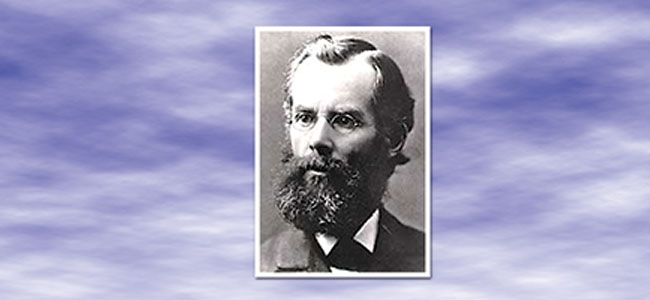July- September

As we look forward to the culmination of God’s plan for our redemption, we see the importance of character development. “The formation of character is the work of a lifetime, and it is for eternity. If all could realize this, if they would awake to the thought that we are individually deciding our own destiny for eternal life or eternal ruin, what a change would take place!” (Child Guidance, p. 162).
A person’s character consists of his or her habits. Thoughts and feelings indulged prepare the way for acts and deeds of the same kind. By repeating the same acts over and over again, habits are established. Through determination and strong effort, habits may be modified, but seldom can they be changed. Actually, once the character is completely developed, it can never really be changed by human devices. “Can the Ethiopian change his skin, or the leopard his spots? then may ye also do good, that are accustomed to do evil” (Jeremiah 13:23).
Once we are grown, the only hope left for us is found in the good news of the Bible. Character transformation is the miracle of miracles. Only God is able to perform it—and He is willing to do this for all who submit to obey His holy law. “Therefore if any man be in Christ, he is a new creature: old things are passed away; behold, all things are become new” (2 Corinthians 5:17).
In this Youth Messenger series on education, the seven divine institutions or principles we have been considering all have their authority in the Ten Commandments. We can even identify their relationship with some commandment in particular. In taking True Education, for example, as a principle, we learn to consider the Lord first in everything and to recognize the importance of speaking only the truth in all circumstances. This is the very essence of the first and ninth commandments.
On True Worship: we have the second and third commandments. On the True Day of Rest—the Sabbath—nothing could be clearer than the fourth commandment. On the Marriage Institution, the principles of the fifth and seventh commandments are positively binding. The Original Diet is clearly related to the sixth commandment, and the concept of Stewardship points to the eighth commandment. Country Living relates to the first and tenth commandments.
Thus we see that these principles are designed to help restore the character of Christ in us. God Himself gave us all of them in the beginning. He confirmed them by His prophets. The second coming of Christ will not take place until these principles are completely restored by His remnant people on earth. “In the time of the end every divine institution is to be restored.” (Prophets and Kings, p. 678).
“Now, as never before, we need to understand the true science of education . . . ‘that they might know thee.’” (John 17:3)
“Repent ye therefore, and be converted, that your sins may be blotted out, when the times of refreshing shall come from the presence of the Lord; and he shall send Jesus Christ, which before was preached unto you: whom the heaven must receive until the times of restitution of all things, which God hath spoken by the mouth of all his holy prophets since the world began” (Acts 3:19–21). The seven principles of holy living need to be restored as we are called to know and practice them in our daily life with Jesus. This identifies us as true reformers. “‘They that shall be of thee shall build the old waste places: thou shalt raise up the foundations of many generations; and thou shalt be called, The repairer of the breach, The restorer of paths to dwell in. If thou turn away thy foot from the sabbath, from doing thy pleasure on my holy day; and call the sabbath a delight, the holy of the Lord, honourable; and shalt honour him, not doing thine own ways, nor finding thine own pleasure, nor speaking thine own words: then shalt thou delight thyself in the Lord; and I will cause thee to ride upon the high places of the earth, and feed thee with the heritage of Jacob thy father: for the mouth of the Lord hath spoken it’ (Isaiah 58:12–14). Here are given the characteristics of those who shall be reformers, who will bear the banner of the third angel’s message, those who avow themselves God’s commandment-keeping people, and who honor God, and are earnestly engaged, in the sight of all the universe, in building up the old waste places. Who is it that calls them, The repairers of the breach, The restorers of paths to dwell in?—It is God. Their names are registered in heaven as reformers, restorers, as raising the foundations of many generations.” (The Review and Herald, October 13, 1891).
May the Lord help you and me to understand these divine principles of true education and put them into practice. If we truly want to have a place in the kingdom of heaven, we must allow the Holy Spirit to complete the work that He has begun in our individual life and in our family. “Now, as never before, we need to understand the true science of education. If we fail to understand this, we shall never have a place in the kingdom of God. ‘This is life eternal, that they might know thee the only true God, and Jesus Christ whom thou has sent’ (John 17:3). If this is the price of heaven, shall not our education be given on these lines?” (Spalding and Magan Collection, p. 56).